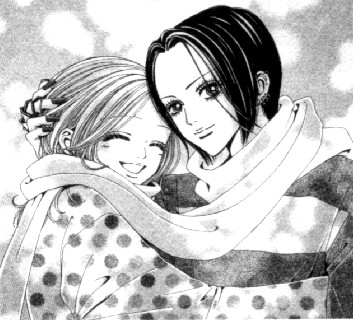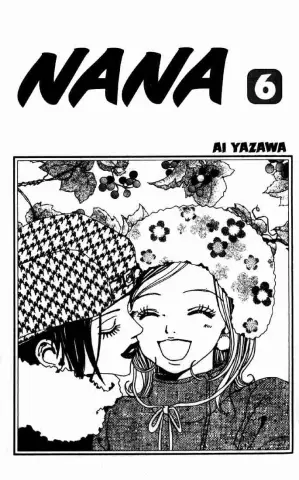A Delicate Balance: Why You Should Read Ai Yazawa’s Nana
Morgana reviews Nana!

For about half a century now, all over the world, large numbers of women have finally been admitted into the work force. Unfortunately, even after all this time, the social responsibilities of getting married and raising children remain largely with women. We are told to be anything we want, to strive for out dreams, but also still expected to want love and all that entails. So, how do you choose?
Ai Yazawa’s extremely popular manga, Nana, looks at life from the perspective of two twenty-something women with the same given name but drastically different lifestyles and goals. Nana Komatsu’s major desire in life is to fall in love and have a family. She follows some close friends from her small town into Tokyo as they all pursue their dreams, leaving her feeling lost and directionless. Nana Osaki had the love of her life, a fellow punk band mate named Ren. But when he is scouted to become the guitarist for the famous band Trapnest, she opts to stay behind to pursue her career and prove herself as a worthy musician – not just some guitarist’s woman.
Through happenstance, the two Nanas meet on the way to Tokyo and end up living together. Nana Komatsu, called Hachi by her new roommate (nana means “seven,” and hachi means “eight”), gets swept up into Nana Osaki’s world of punk music, rebellion, and heartache. And despite their very different personalities, the two become close friends.
It’s hard to write about Nana without feeling as though I’m not doing it justice; this is more than a mere two-best-girlfriends-embroiled-in-romance story. The Nanas really exemplify a beautiful duality, the difficulty between balancing real love and a passionate career. And beyond that, the story is very realistic, with little room for romantic tropes or expected outcomes.
I initially found myself thinking of Nana K. as an outdated, problematic representation of the female ideal, especially compared with Nana O.’s strong will and burning motivation to prove herself. But Nana K. actually provides an important glimpse into the way women are socialized into thinking about themselves and their futures, and how that socialization takes its toll in many very negative ways. In the same vein, Nana O.’s pride continually sets her up for musical success but emotional bankruptcy, highlighting the idea that a love which blossoms naturally out of true friendship is not something that should be tossed aside.

Yazawa’s artwork is easily recognized among manga fans, especially those of us who were browsing through the comic book aisles in the mid-90s and early 2000s; her series Paradise Kiss was extremely popular and advertised at the end of nearly every one of Tokyopop’s shoujo manga issues. Her fascination with fashion is clear from her skinny, leggy figures and her casual mention of famous designer brands. So in addition to being an extremely involving story, Nana (and ParaKiss as well) is an absolute visual luxury, complete with expressive eyes and more facial piercings than I’ve ever seen in popular Japanese media.
Recently available through Comixology, the Nana manga ran from 2000-2009 in Cookie manga magazine, put on an indefinite hiatus when Ai Yazawa fell ill. Though Yazawa came back from the hospital in 2010, no word has been made as to whether or not Nana will be continued. Despite this fallback, the series was adapted into an anime and two live-action films. The anime is available to stream on both Hulu and Neon Alley, and I highly, highly recommend it – just make sure you have tissues at the ready!
Even with all the introspection and social critique, Nana can also be fun, light-hearted, and deliciously dramatic by turns. And the music in the anime, performed chiefly by Anna Tsuchiya, is a real treat, immediately transporting the viewer into the tumultuous world of a punk rock show in a grungy, underground venue.
Nana is also one of those stories that simply stays with you. It’s been over a year since I watched the anime, and I’ve just flipped through back issues of the manga to refresh my memory. I’m just as moved and conflicted by the story now as I was when I finished the series, and I’m able to find myself identifying with both of the titular characters in turn in different ways as time passes. I’m not the type of person to seek out romances, but there is something about the raw honesty with which Nana is told that keeps it at the top of my favorites list.
Morgana Santilli is an aspiring comic book writer/artist and an avid viewer of anime and reader of manga. She believes that media is one of the largest influences we have in our lives, and she therefore promotes thinking critically about media in its many forms. Some of her artwork can be seen at her tumblr.
Are you following The Mary Sue on Twitter, Facebook, Tumblr, Instagram, & Google +?
Have a tip we should know? [email protected]